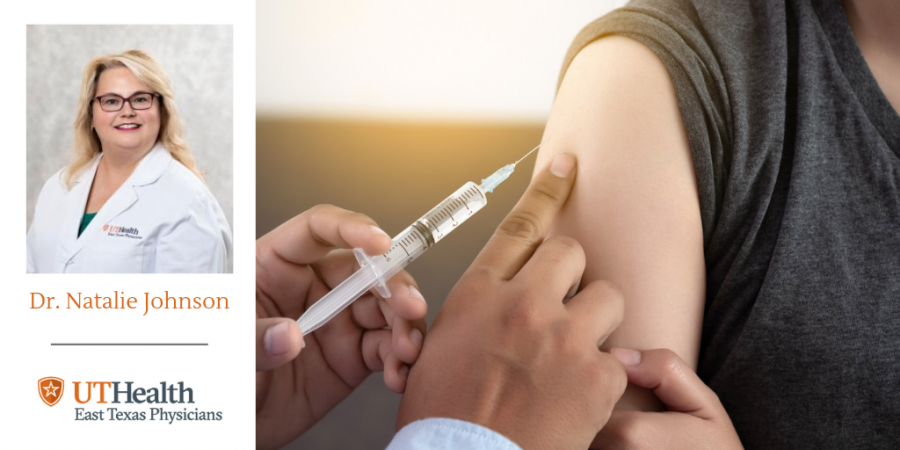
When I think about some of the more controversial public health issues that we see in the U.S., vaccinations are usually at the top of the list. People argue back and forth with pro and anti-vaccination stances but oftentimes are unfamiliar or unclear about the actual data regarding vaccines. I am not using this space to take a pro- or anti-vaccine status, but to take a moment to explain what vaccines are, why we use them, what they can do and who should avoid them.
What are vaccines?
Vaccines are biological preparations that can help your body provide immunity against specific diseases. A vaccine usually contains 2 parts: a piece or mutated form of the infective illness you are trying to prevent and an agent that stimulates your immune system to recognize is as a threat. The vaccine causes a cascade of reactions in your immune system to detect the problem, destroy it and then memorize it to fight it off in the future if you are exposed again. Currently the Centers for Disease Control and Prevention recognizes 25 different vaccinations that are available in the U.S. to prevent infections.
Why do we use vaccines?
Vaccinations have allowed us (as a nation) to control diseases that once threatened many lives. Diseases such as measles, smallpox, polio, tetanus and whooping cough were devastating to the population. Vaccinations have allowed us to almost remove their threat to public health. When you as an individual get a vaccine, you are protecting yourself from the disease. But the impact of that does not stop with you. When groups of people in your community get vaccinated as well, it decreases the incidence of that disease and also decreases the likelihood of that disease spreading. This is called herd immunity.
Who should avoid vaccines?
Different factors such as age, health conditions and other clinical indications may prevent people from receiving certain vaccines. Age is usually a concern when looking at what stage of development the immune system has attained. There are contraindications to vaccinating young children prior to certain immune system development stages. Also genetic immune system defects may warrant no vaccination in some cases or multiple vaccinations to achieve immunity. It is also not recommended to receive vaccines for diseases that you may not ever come in contact with such as Dengue or typhoid (which are more prevalent in other continents). Finally, if your immune system is compromised or you have an allergy to any of the preservatives in the vaccine itself, you would want to abstain from getting that vaccination.
Reactions to vaccines
Patients will often tell me “that shot made me sick.” Vaccines are designed to stimulate your immune system in a somewhat controlled environment. What people may not understand is that most of the symptoms we have during an infection are not caused by the bacteria or virus itself, but by our own immune response to it. Fever, swelling, body aches, headache and fatigue are symptoms that are usually related to the immune system response to infection. When your body comes in contact with the pathogen that the vaccine is carrying, it will cause a minor version of the immune response rather than what you would see with a full-blown infection.
Where to learn more
There is an overwhelming amount of research and evidence that shows that vaccines are safe and that side effects are rare. They are highly effective but none achieve 100 percent protection. The closest is measles, which approaches 98 percent. Flu varies between 40-60 percent but still has some effectiveness especially when considering herd immunity as discussed above. The CDC website, www.cdc.gov, illustrates each vaccination and gives detailed information on when to give them, who should get them and who should avoid them. It is a free resource and is a good platform to find answers to any questions you may have regarding vaccinations.
Information provided by Natalie Johnson, MD, board-certified internal medicine physician at UT Health East Texas physicians on Fifth Street in Tyler.

